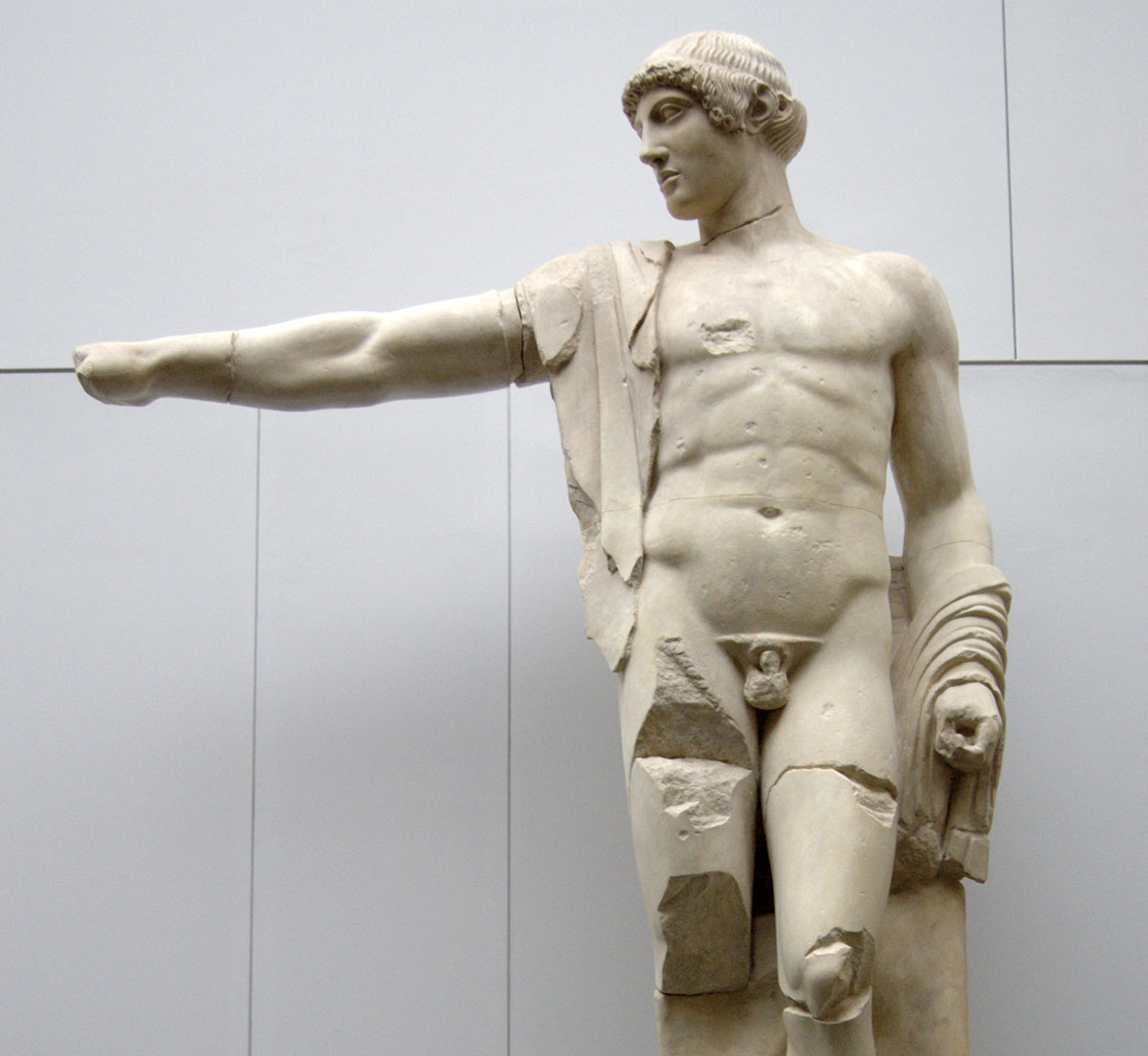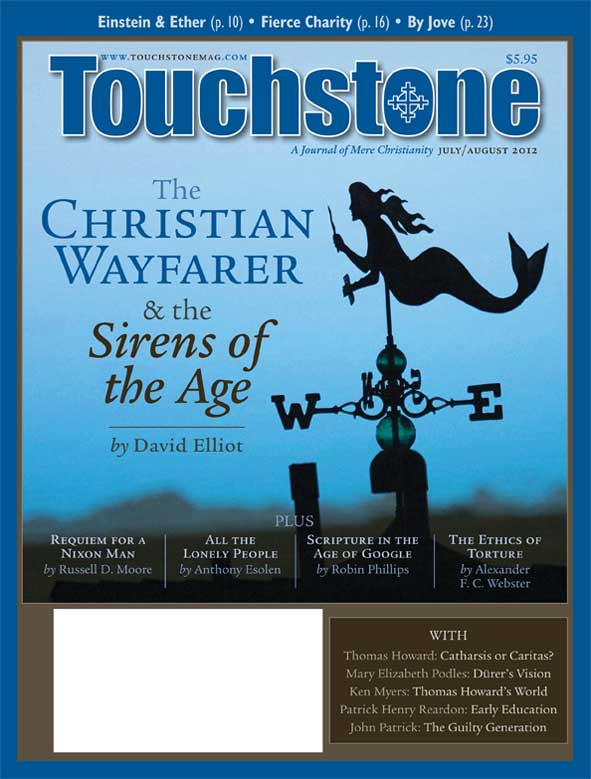Shaped, Fixed & Free
Patrick Henry Reardon on the Divine Gift of Truth
I was less than half my present age when I first surveyed the famous image of Apollo at Olympia. Housed there, in modern times, in the archaeological museum, this sculpture originally adorned the west pediment (triangular upper section of the wall) of the Temple of Zeus. It is among the most instructive art works I have ever contemplated.
I picture the worshipers at Olympia walking around to the west side of the temple, at eventide, to gaze at this heroic image of the sun god, as he stood in solemn majesty to face the setting sun. Here they beheld Apollo's white figure slowly turn to rose and honey in the glow of the twilight—"thy western halls of gold," as Keats put it.
Clustered around the feet of Apollo, in this image, and a fraction of his size, the Lapiths of Thessaly do battle with the offensive Centaurs, while the sun god himself, standing in the triangle and towering above the scene of turbulence beneath, extends a commanding right arm to impose on chaos the eternal claims of rational order.
This scene, sculpted about 460 b.c., was perhaps inspired by the recent victories—Marathon in 490, Salamis in 480, Plataea in 479—of the "rational" Greeks of the West over the forces of anarchy brought by the Persians from the East. This very theme, after all, was prominent in Greek politics and literature through the next century.
Apollo's Necessary Imposition
When I described the rational order as something "imposed" in this scene, the participle was chosen deliberately. It is an obvious feature of sculpture that form is enforced; statues are not permitted to grow and expand as they might wish. In all things, but in nothing more than sculpture, rationality requires rationing.
For the Greeks, truth was fixed and determined. It was beyond man's ability to control. Man could discover truth, but he could not make it. It was objective, not subject to human manipulation. Truth could accomplish many things, but it could not change. To know the truth was to know why it must be the truth. Freedom was the last concept the Greeks would ever have associated with truth, and history was the last place they would expect to find it.
Consequently, classical Greek philosophy believed that truth represents an imposition, inasmuch as the truth is one and necessary. It is eternal, unchanging, and utterly monist. Its proper standard is symbolized in trigonometry. Euclid and Pythagoras got it right; there is no wiggle room in a triangle.
Thus, classical philosophy held that whatever was known to be true was true because it had to be true. Lucidity was conveyed by necessity, so that the contours of truth were as stable as the stone shaped by the frame of Apollo. This conviction was arguably Greece's chief contribution to the philosophia perennis.
Christ's Free Gift
Patrick Henry Reardon is pastor emeritus of All Saints Antiochian Orthodox Church in Chicago, Illinois, and the author of numerous books, including, most recently, Out of Step with God: Orthodox Christian Reflections on the Book of Numbers (Ancient Faith Publishing, 2019).
subscription options
Order
Print/Online Subscription

Get six issues (one year) of Touchstone PLUS full online access including pdf downloads for only $39.95. That's only $3.34 per month!
Order
Online Only
Subscription

Get a one-year full-access subscription to the Touchstone online archives for only $19.95. That's only $1.66 per month!
bulk subscriptions
Order Touchstone subscriptions in bulk and save $10 per sub! Each subscription includes 6 issues of Touchstone plus full online access to touchstonemag.com—including archives, videos, and pdf downloads of recent issues for only $29.95 each! Great for churches or study groups.
Transactions will be processed on a secure server.
more from the online archives
calling all readers
Please Donate
"There are magazines worth reading but few worth saving . . . Touchstone is just such a magazine."
—Alice von Hildebrand
"Here we do not concede one square millimeter of territory to falsehood, folly, contemporary sentimentality, or fashion. We speak the truth, and let God be our judge. . . . Touchstone is the one committedly Christian conservative journal."
—Anthony Esolen, Touchstone senior editor











